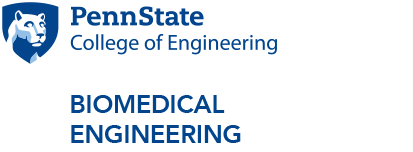Biomedical Engineering announces two new courses for spring 2017
10/05/2016
The Department of Biomedical Engineering is pleased to announce two new course offerings for the spring 2017 semester.
The first course, Collective Motion in Active Systems, will be instructed by Igor Aronson, professor of biomedical engineering, mathematics, and chemistry.
Course Description:
Assemblies of interacting self-propelled organisms or synthetic agents, from molecular motors to living bacteria, motile cells, bird flocks and even robotic swarms, are often termed “active matter”. Despite the simplicity of individual interactions between the constituents, large assemblies of self-propelled agents exhibit fascinating collective motion. This motion is manifested by spontaneous formation of large swarms and flocks with the characteristic scale significantly exceeding the size of the individual organism. In this course, I’ll systematically overview the most recent progress in the field of active matter, and will discuss various modeling approaches to the description of their collective motion. I will discuss how simple theoretical and computational models can be applied to cytoskeletal systems, suspensions of swimming bacteria, morphogenesis and tissue dynamics. I will review various types of models of flocking based on the motion of individual particles and then proceed to the continuum description.
Also being offered, is Computational Modeling and Statistics for Bioengineering, which will be taught by Xiao Liu, assistant professor of biomedical engineering.
Course Description:
An essential mission of biomedical engineering is to distill biological data into meaningful mathematical and statistical representations using computational tools. This course covers statistical methods and computational models needed for biomedical engineering research, particularly those involving multivariate data. Students are expected to acquire a variety of skills for modeling and analyzing data arising from typical biomedical engineering research at the molecular, cellular, and system levels, and then to apply the knowledge toward discovery of bioengineering principles from experimental observations and big data.
More information on either course can be obtained by contacting the faculty instructors, or graduate program staff assistant, Jenna Seiber.



